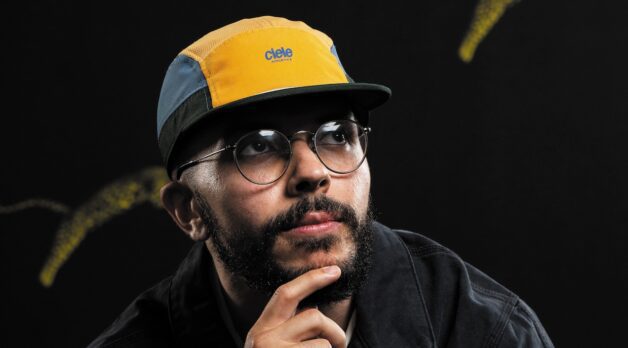Joel Alfonso Vargas
 Joel Alfonso Vargas
Joel Alfonso Vargas

Joel Alfonso Vargas’s breakthrough 2020 short, Target Is Hiring, has as its leads two “showtime” kids who breakdance mid-car while blasting their own music, a familiar NYC subway routine that generally unfolds before indifferent or outright hostile everyday commuters. This year’s Que te vaya bonita, Rico (May It Go Beautifully for You, Rico) similarly first identifies its main character by an occupation specific to the city. Rico (Juan Collado) hawks nutcracker cocktails (a mixture of liquor and fruit juice heavy on the latter) on the beach and lives at home with his mother (Yohanna Florentino) and sister (Nathaly Navarro). The teenager also has a freshly pregnant girlfriend, Destiny (Destiny Checo), who moves in with the family and who Rico drafts to join his illegal hustle, but a run-in with the law derails their already dubious occupation. Shot in carefully locked-off shots that train a careful eye on both a specific Bronx milieu and faultlessly naturalistic performances, the short won best director earlier this year in Locarno’s short film section following its premiere there, the latest destination for a director who’s already covered a lot of ground on his path to filmmaking.
Born in Manhattan, Vargas lived in the Dominican Republic for the first four years of his life before moving to the Bronx. His first interest in film was sparked when his older brother showed him Scorsese’s Italian American–centric classics, whose diasporic casts and familial dynamics resonated with Vargas’s own Dominican background and neighborhood life. With that initial interest in film, he applied to USC and studied there for a year before obtaining a Fulbright to study documentary filmmaking at the University of the Arts, London. There, he realized that the documentary form extended beyond the stereotypical talking heads prototype to include the poetic and participatory idioms.
At the same time, access to the Criterion Collection (via his cousin’s Hulu account) opened Vargas up to filmmakers like Maurice Pialat and Pedro Costa. “I’d always been a quiet, observant child,” Vargas notes, “and when I came across observational cinema in my 20s, I was really drawn to it because I felt like that’s the way that I experienced the world.” Speaking of his attraction to the documentary form, Vargas cites “the immediacy. With fiction, there’s always a lag in the development process. I’m more interested in films that are documentary with fictional elements than fiction films with documentary elements.” Made in part with support from a Tribeca All Access grant, Target Is Hiring was a breakthrough for Vargas both professionally and because of what he learned while working with a non-performer cast: “When you direct non-actors, if you give them very psychological direction that maybe you could use with a more experienced actor, they lock up and get a bit stiff.”
So, on Rico, “I was trying to avoid that.” The film was made as part of Vargas’s course of study at the National Film and Television School, from which he graduated in 2024. Writing in bullet points rather than fully fleshed scenes, Vargas would rehearse the cast and have them improvise. “I use Voice Memos to record everything, and then in the evening, I’ll listen to everything and choose what’s really working. I wouldn’t even talk about the rehearsal until just before we’re shooting the scene.” Then, he’ll go back to “the section that I like, play it back for them” and try to have them do it again. “I don’t try to intervene too much,” he explains. “The intervention really comes in the casting process. That process entails flying around parks and beaches and flooding social media. Then, subsequently, a lot of chemistry tests.” His cast is a mixture of professionals and non-professionals, including the central couple: “Destiny has no experience. Juan does community theater stuff, but he doesn’t have a lot of film experience.” Fresh off its premiere victory, the short is part of a larger project set within the same story world whose premiere is scheduled for 2025.—Vadim Rizov/Image: Locarno Film Festival/Ti-Press
